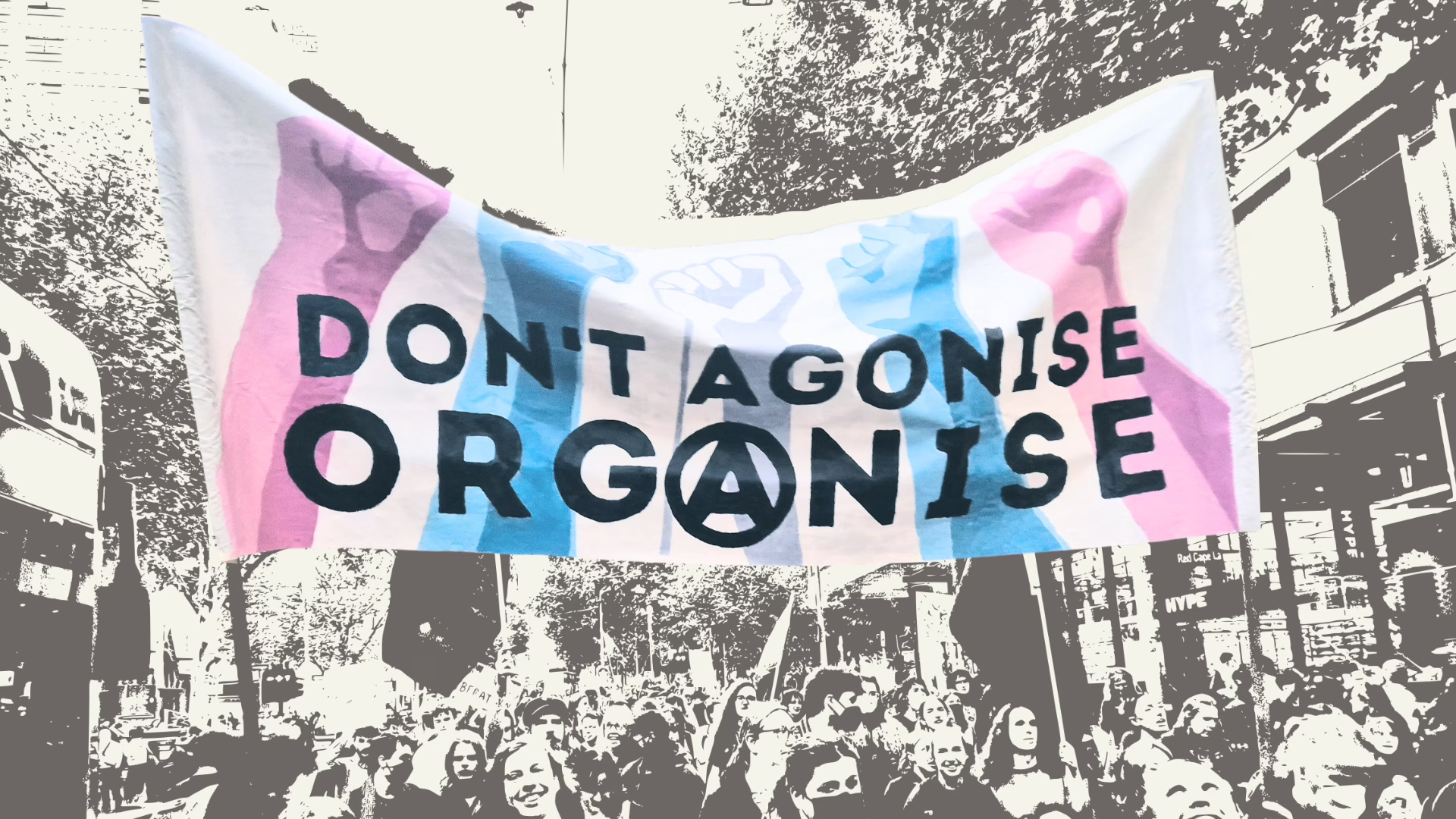Trans people are the latest scapegoat in a much older fight. Governments are dismantling our civil rights, gutting public services, and tightening control. In Queensland, that now includes a ban on gender-affirming care for trans people under 18.
I joined around a hundred others in protest against this ban. Most were young, and many were at their first rally, facing harassment by far-right groups loitering at the pub next door. It was a clear picture of what resistance often looks like now: brave, but small and under pressure.
But courage alone won’t win this fight. Neither will being visible for its own sake. If we want lasting change, we need power. That means organising, especially in the places where we already have strength: our workplaces and our unions.
Trans struggle is worker struggle
Unions aren’t perfect. They can be slow, bureaucratic, and cautious. But they’re one of the few tools we have that can challenge bosses and governments. Not with statements, but with action: walkouts, strikes, workplace campaigns. The kind of action that can’t be ignored.
But even unions with strong politics often won’t act without pressure. Without organised voices from below, they’re more likely to chase headlines and set aside our issues as too “divisive.” That’s why we need to build from the ground up.
Start where you are
Trans people are already in every kind of workplace: schools, warehouses, hospitals, offices. And the things we need—healthcare, safety, dignity—are the same things all workers need.
Talk to your coworkers. Find out what’s frustrating them. Maybe it’s short staffing, poor wages, or a new attendance policy. These are your starting points. As we fight side by side, there’s less space for transphobia to grow.
Don’t wait for permission. Set up meetings. Connect with other members. Bring trans issues into day-to-day union work. That could mean passing motions for transition leave, access to affirming care, and protections from discrimination, while linking these to broader issues like public healthcare, parental leave, and abortion rights.
Build on what’s already there
We don’t have to start from scratch. The National Tertiary Education Union has already won gender transition leave at several universities, thanks to members pushing for it. The NTEU’s queer caucus, QUTE, is one example of a space that can be made more active, democratic, and focused on real change.
If your union has a queer or trans caucus, join it. If it doesn’t, help start one. Use it to learn and to build. Figure out how to map your workplace, how to lead meetings, and how to push back when leadership avoids the hard fights.
Make and share union bulletins. These help link struggles, show workers they’re not alone, and build understanding. A good bulletin makes visible what management tries to hide.
We all work under the same bosses, deal with the same bills, and live in the same world. When we fight together, we learn to trust each other. That kind of trust breaks down transphobia far more effectively than any visibility campaign ever could.
Focus on power, not PR
This is only a starting point. But, these are real things we can do right now. We don’t need to wait for NGOs or headlines. If we treat this as a fight over our material lives, not a branding issue, we can start to turn the tide.
Too much of our movement is stuck chasing media moments or trying to seem respectable enough to be left alone. It won’t work.
We are being out-organised by the right. Those in power are using fear and division to stop us from fighting back. Little by little, they are trying to erase us.
The only thing that has ever stopped them is collective resistance: organised, consistent, and rooted in real power.

